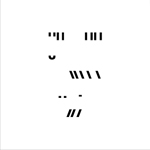|
|
 |
Dusted Reviews
Artist: Jakob Ullmann Album: Fremde Zeit Addendum Label: Edition RZ Review date: Aug. 27, 2012 |

|
|
|
 |
Jakob Ullmann’s music exists just at the threshold of audibility. I mean this quite literally; this is some of the quietest music I’ve ever heard. This three-disc compendium comprises music written between 1989 and 2007, and the composer’s unity of purpose, in tandem with a strikingly diverse timbral palette, is astonishing.
Ullmann’s long-form compositions emerge and disappear slowly, sometimes with a glacial pace akin to Elianne Radigue’s compositional style. Once in progress, they do not thrive on the vast silences associated with Wandelweiser composers. In fact, there is actually very little silence in play, once the ear adjusts to the extraordinarily low dynamic level (the booklet instructs us to play the music so that it barely masks the sounds in the room.) When acclimation occurs, a rich and varied soundworld swims into focus. The slow transformations might begin with a single sustained pitch, as happens on “Disappearing Musics,” the composition resembling nothing so much as a universe evolving from that long looming note. The repeated piano figures evoke shades of late Morton Feldman, but the reverberant acoustics set every whoosh and cascade in soft focus. More typical of the music presented here is “Composition for String Quartet 2,” from 1999. The first five minutes barely break through the silence when listened to at a normal volume, but a fairly busy world of Webernian pointilisms, Pendereckian rustlings, Ligetian slides and occasional pops exists just below the increasingly transparent room environment. Listen to the single pitch piercing the veil 37 seconds in, which then become common occurrences, or to the luminous cello entrance just after the three-minute mark to hear the timbral variety in constant play. Over the piece’s 47-minute duration, the volume increases at a snail’s pace, while the disparate sounds gradually coalesce into a multi-layered drone of deep beauty.
“PRAHA:celetna-karlova-maiselova,” a vocal work completed in 2007, is the most elusive in the set, its hushed sonorities making the other pieces seem almost cacophonous. Based on a Jorge Louis Borges short story, the plot involves the stopping of time, an apt consideration given the music’s staticity, even in the face of continuously shifting plains of sound.
Ullmann’s compositional language is enigmatic. It is neither tonal nor atonal; long tones vie with briefer utterances and with sounds for which conventional notation will not suffice. He is careful to avoid repeating compositional strategies, making his consistently unique soundworld all the more remarkable. As with the label that has championed his music, Ullmann defies dogma while never completely forsaking tradition. The performances are uniformly excellent, but particularly impressive is the Pellegrini-Quartett’s realization of a mind-bogglingly difficult score. They go a long way toward making the set the revelation it is.
By Marc Medwin
|







